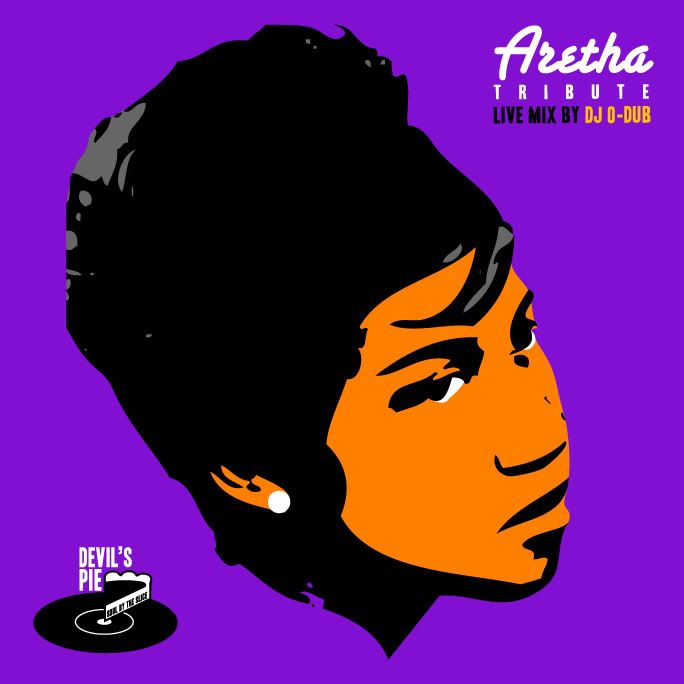REVOLUTIONARY MIXTAPE - A M.A.N. CONTRIBUTION
posted by O.W.

Apart from being one of America's leading scholars and pundits on Black public culture, Mark Anthony Neal is also a music junkie at the core. I had approached him a few months ago to collabo on some Soul Sides post but with his busy schedule, writing about a book a month (or so it seems), he couldn't commit to anything right away. Then I saw this posting from last month - part of his Critical Noir columns for AOL's Black Voices site: Revolutionary Mixtape -- Songs That Made the Movement. It was great column about the intersection beteween the Black Civil Rights and Power Movements and the music of those eras. However, for a mixtape, there wasn't any, you know, actual music to go along with the column.
That's where we come in. So here it is, the Revolutionary Mixtape Revisted (done with M.A.N.'s permission):
- Originally written by Mark Anthony Neal, Feb. 2005
"The spirits do not descend without music" -- Amiri Baraka (Leroi Jones), 'Blues People'
Does the movement make the music or does the music make movement? It is a classic chicken-before-the-egg question that has challenged scholars of history and critics of popular music for some time. There's little doubt though, that for the descendents of formerly enslaved Africans in the United States, music has been a vital aspect of their experience. More so than the literature or visual art and dance that have captured our experience, music has been the primary repository for our anger, fears, desires, pleasures, hope and spiritual beliefs. If you want to get a sense of where the black community at large is at any given time, just listen to our music. This was never more the case during the era of the civil rights and Black Power movements when songs like 'We Shall Overcome' and 'Lift Every Voice and Sing' were the only armor that marchers wore. Below is a mixtape of the songs that made the movement.
'(I Wish I Knew How) It Would Feel to Be Free' -- Nina Simone
From Heart and Soul (RCA, 1972). Also available on Anthology.
Many of the hard-core activists from the period, including the late Kwame Toure (Stokley Carmichael), considered Nina Simone the "voice" of the civil rights movement. While a track like 'Mississippi Goddamn' captures the anger that often surfaced in Simone's personality, it is the more restrained '(I Wish I Knew How) It Would Feel to Be Free' (written by Dr. Billy Taylor) that really captures the emotions of the period.
'We're a Winner' -- The Impressions
From We're a Winner (ABC, 1968)
With classic recordings like 'Keep on Pushin',' 'Amen' and 'People Get Ready,' Curtis Mayfield and the Impressions helped to mainstream the ideas of the civil rights movement with non-threatening pop anthems. Perhaps this is why so many folk were in a tizzy when Mayfield's music became more concretely political beginning with 'We're a Winner' -- some stations refused to play the song. It was no longer about a "piece of the pie"; Mayfield was talking about a "takeover."
'Young, Gifted and Black' -- Aretha Franklin
From Young, Gifted and Black (Atlantic, 1972)
When you are arguably the most important black female vocalist of the 20th century (Billie Holiday notwithstanding) and you were literally raised in the bosom of the movement (courtesy of your daddy The Rev. C.L. Franklin), every note you sing is gonna take on an enhanced significance. And indeed, throughout the 1960s Aretha's voice was used in the service of the movement many times. But her most political recording didn't come until 1972 with the release of 'Young, Gifted and Black.' It was Franklin's rendition of the title track -- a song written and initially performed by Simone in tribute to her friend, the late playwright Lorraine Hansberry -- that lit a fire in the still emerging post-civil rights generation as witnessed by John Singleton's use of the song in the film 'Higher Learning.'
'A Change Is Gonna Come' -- Sam Cooke
From Ain't That Good News (RCA, 1964)
With the exception of Ms. Billie's 'Strange Fruit' or Coltrane's 'Alabama,' there is perhaps no other song recorded by an African American in the 20th century that makes you stop dead in your tracks the way Sam Cooke's 'A Change Is Gonna Come' does. Mournful, sullen and majestic, the song was Cooke's final gift to a movement that was losing dreamers to shotgun blasts by the day.
'I Don't Want Nobody to Give Me Nothing (Open Up the Door, I'll Get It Myself)' -- James Brown
From Sex Machine (Polydor, 1970)
JB's 'Say It Loud (I'm Black and I'm Proud)' seems like a more obvious choice, even with the little Asian-American and Caucasian kids who sang background on the tune. Whereas 'Say It Loud' was a popular "feel good" anthem, JB's more pronounced Black Nationalist do-for-self politics was on display with 'I Don't Want Nobody to Give Me Nothing (Open Up the Door, I'll Get It Myself).'
'Express Yourself' -- Charles Wright and the 103rd Street Rhythm Band
From Express Yourself (Warner Bros, 1969)
Throughout the 1970s Gamble and Huff revolutionized the concept of politics on the dance floor. But years earlier it was a slice of West Coast funk from Charles Wright that captured the style politics of the generation that emerged in the aftermath of the marches, sit-ins and murders. This "free to be black and me" anthem would be recovered nearly two decades later when Dr. Dre paid tribute to Wright with N.W.A.'s version of the song.
'Walk Tall (live)' -- Julian "Cannonball" Adderley
From Country Preacher (Capitol, 1969)
Back when our man Jesse Jackson Sr. was lovingly known as the "Country Preacher" he often opened up Operation Breadbasket offices to the popular musicians of the day. In October 1969 it was Cannonball Adderley's funky soul-jazz that was in the house. Rev. Jackson's introduction to 'Walk Tall' is worth the price of admission alone.














